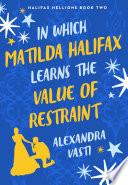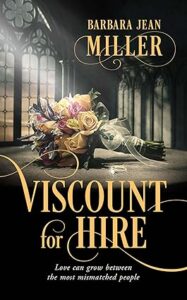
Moniker/Name: Monica
Your Question: I’ve been wondering about the need for young gentlewomen who lived with male relatives to have female companions once they’d outgrown their governesses. My online research didn’t turn up much, except the explanation that such companions played the role of a chaperone. Georgiana Darcy has Mrs Annesley in Pride and Prejudice but Emma Woodhouse doesn’t have a proper female companion after Miss Taylor’s marriage, while Elinor Tilney in Northanger Abbey is said to be ‘uncomfortably circumstanced’ in that she doesn’t have one. I’d be delighted if you could shed some light on this issue. TIA.
Source of Question: Just curious
An excellent and very important question, Monica!
A chaperone’s role was two fold: first, to make sure her charge did not get into scrapes…including ruin and second, to help maneuver a debutante towards an advantageous marriage. It is important to stress that the role of advocate for a young, unmarried woman was perhaps a better description of a chaperone’s purpose.
Typically, a debutante would be chaperoned by her mama. When a young lady did not have a mama, she may have looked for one to help launch her into Society, preferably one of rank and circumstance.
A chaperone was not always necessarily one individual, like a companion. A young lady may live comfortably at home without a chaperone, as long as she was not present in Society. A chaperone for walks could be a maid, groom, relative, or any one who could temporarily safeguard a young woman’s reputation.
In London, rules were more rigid.
According to The Lady’s Guide to Complete Etiquette (1800):
The first and most intelligible of these is the rule that no young lady should be seen in public without a chaperone, who, provided that she is or has been married, is considered, whatever her age may be, as thoroughly suitable for the office. This accommodating privilege, it is true, occasionally entails rather ludicrous consequences; as in the case where damsels of mature years make their appearance in a ball-room under the wing of a mentor younger than themselves, but in her capacity of matron perfectly equal in the eyes of society to the responsibility of protecting them. The next item also concerns the young ladies, those, at least, who chance to inhabit Belgravia, with those liberty of locomotion it has a decided tendency to interfere; their morning walks, even when accompanied by the indispensable abigail, being capriciously restricted to that patrician quarter of the town. They may shop in Sloane Street, or even Knightsbridge, but Hyde Park Corner is a barrier beyond which, like the lote-tree in Mahomet’s seventh heaven, for them there is no passing; one step further would lead them into Piccadilly, and then – what would Mrs. Grundy say!
Very often a girl has to go out under other chaperonage than that of her mother; and she is sometimes a little in doubt of what is expected of her under these circumstances. A girl must remain at her chaperon’s side at a ball till she begins to dance. Between the dances she may walk about with her last parter, go and get refreshments with him, or sit in one of the corners provided for the purpose till the next dance begins. Her partner must then take her back to her chaperon, and, unless her next partner encounters her on her way back to the ball-room, she waits by her chaperon’s side till he comes to claim her. Girls with dancing chaperons are sometimes awkwardly placed, since their chaperons may be waltzing while they themselves may be sitting out, and a young girl under these circumstances feels rather shy and lost in a crowded room. If she knows another chaperon present she can ask to sit by her till her next partner comes. A chaperon too often considers her duties to have ended with entering a room. But if she is conscientious in performing them she will try to introduce partners, and to secure the enjoyment of her charge. She should be at hand in any case of need – if the girl tears her frock and has to go to the cloak-room to have it mended, or in a thousand other little contingencies that might occur. The chaperon gives the signal for going, and no girl with any real breeding will try to elude her, or to make her stay longer than she wishes. But the chaperon, on her part, should temper justice with mercy.
Perhaps a shorter answer would’ve sufficed, but I think the explanation is best when in depth.
As for Eleanor Tilney, she referenced Alice, who presumably was her maid and served occasionally as a chaperone when her brother or father were not on hand. Judging by general descriptions of Eleanor’s father, he was not concerned with launching her into Society, and her brother could easily safeguard her virtue.
As to Emma, she is frequently accompanied on her jaunts by Harriet Smith or others who serve as companion. While in her own home, with her father, she is not dependent on a female representative as presumably she is neither endeavoring to spring the parson’s mousetrap or at risk of ruination.
Frederica (in Heyer’s heroine titled novel) is chided by her sponsor for presuming to walk the very naughty Lufra without accompaniment of groom or maid, being told that manners in Town are not as free as in the country.
Austen, too, provides us examples of young unmarried ladies in the country who are either unaccompanied or have friends serving as makeshift chaperones. Both Jane and Elizabeth go to Netherfield without a hovering Mrs. Bennett. Marianne takes her walks with younger sister in tow, and Anne Elliot is frequently left to her own devices. I believe the assumption is that propriety, in these cases, is maintained because they are either a). not in mixed company (meaning, no guys) or b). chaperoned by friends and staff
From The Glass of Fashion (1881):
At a garden party the chaperone may allow a little more freedom of movement her charges may play lawn tennis or saunter about the grounds with their friends but before leaving her side they should inform her of their intentions and obtain her approval . When staying in a country house etiquette requires that the young ladies should appear in the drawing room before dinner with their chaperone going to her room to accompany her downstairs. In short the chaperone must keep a strict though guarded and not too obvious a watch over the doings of her charges and mention to them firmly and without delay anything in their conduct which elicits her disapproval.
When going to a ball in the country a chaperone prefers having her young people in the carriage with her but sometimes this cannot be managed and then she exerts herself to see that there is some chaperone in the carriage with them. There are several places where no chaperone will allow her girls to go without either herself or some substitute.
Until they have been out two or three years and have gained experience of the ways and proprieties of society she will not allow them to visit in country houses without her nor consider a brother a sufficient chaperone at a ball. She may perhaps allow them two together to walk unattended in Belgravia but this permission will not extend to the Park where young ladies cannot walk unchaperoned. It is growing permissible now that is to say it is often done for young ladies to ride attended only by a groom but it is not good style and an escort either male or female should be provided. It is allowable for young ladies to drive about alone in the afternoon to leave cards or to call on relatives or exceedingly intimate friends but not for them to go to tea parties by themselves. With the chaperone of course rests the decision as to what parties are to be attended or what acquaintances made. In a word she acts as the guide philosopher and friend of the young ladies who are put under her charge.
This perhaps explains why Eleanor Tilney is allowed to venture out with only Henry as an escort; her age and deportment suggest the maturity of a lady who has been in Society for several years. Generally, a brother or father was an undesirable substitute for a young debutante;
(Manners and Rules of Good Society, 1888).
We might then intimate a few things about Eleanor and Emma from the absence of a chaperone. 1). They are considered well past the age of a white muslin debutante 2). Circumstances (including eccentric fathers in both cases) are such that a chaperone is not provided. In both cases, we see it creates loneliness for the characters who seem to long for a mother figure. Perhaps this, in its way, is a commentary on the solitary discomforts of a young woman who does not make an eligible alliance.
To summarize, a few maxims about chaperones:
- An unmarried young woman, up to the age of thirty, must always accompanied by a chaperone when she goes out in Town, with the exception of walks outside of the Park or calling on very intimate acquaintances (like relatives)
- Only married women could act as chaperones in Town. A widow will suffice, but generally an older spinster is unequal to the task (at least in terms of helping to serve as an advocate).
- An unmarried woman could not be alone in a room with a male visitor.
- An unmarried woman could not go anywhere with a man to whom she was not related unless a married gentlewoman or servant accompanied her.
- Country strictures were less rigid, allowing for more freedom for young ladies.
- A brother or other male relative may serve as chaperone, but generally they were seen to be a poor substitute for a woman, with little motivation to secure a match and even less to remain attentive.
- After several years of being out in Society, a young unmarried woman may enjoy slightly more freedom from chaperonage. Because marriage was the ultimate objective of chaperones (by protecting virtue and promoting eligible matches), the closer a young woman got to being considered on the shelf, the less concern was shown for proprieties.
I hope this sheds some light! Indeed, I think its a very dense subject with lots of caveats and intricacies that are almost impossible to know in hindsight. However, I think by focusing more on the advocacy of a chaperon over the protection of a charge’s virtue, we are able to see that young women of Quality required a chaperone when marriage was end game.












If an unmarried young woman, say 20ish (past come out by several years) is visiting London and staying with friends, might she take a carriage ride with a gentleman for an hour in the park?
If it is an open carriage, yes. In a closed carriage, no way! Typically, a gentleman would have a tiger or groom with him to hold the horses, but forget about sneaking off into the bushes–even a married woman would blush!
Yes, I know sometimes our Reg Roms show a young lady sneaking off into the “remote” areas of the Park with a rakehell, but unless she wanted to risk ruin, a smart unmarried woman would not oblige.
Given London traffic, an hour would most likely be understandable–anything over a few hours and fear would surely be that the couple had hied it off to Gretna.
Thank you so much for your thorough explanation. Absolutely delightful! I think you succeed in capturing the complexities of the subject. Now, going back to Jane Austen, Elinor Tilney does have a chaperone at the Upper Rooms, Mrs Hughes, who performs the role you describe. A new question has been prompted by your post, however: Does Charles Musgrove leave Anne Elliot alone with Captain Wentworth at least partly because she’s close to being considered on the shelf :)?
I don’t remember Mrs. Hughes, but I confess I get so darn distracted by Henry every time I read Northanger, that doesn’t surprise me.
As for Anne, at 27 she is pretty much a confirmed spinster and therefore viewed as a non-entity. I think Charles feels okay leaving Anne alone with Captain Wentworth in the end because they have been in company a lot recently (so they are not strangers and do not appear to be courting). I also think the general treatment of Anne throughout as a non-entity (especially her father) results in her being regarded as little more than a servant.
Interesting how much quiet conflict Austen novels portray between heroine and father….